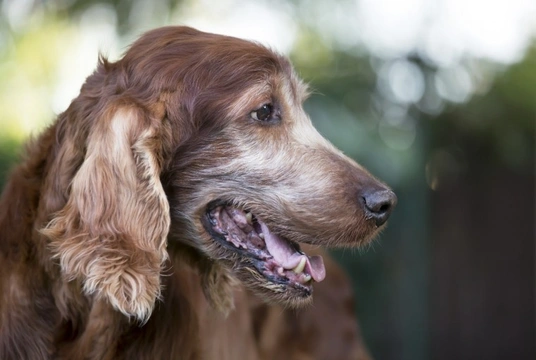
Keeping older dogs safe and happy in the summer
As the weather finally begins to get warmer and the longest day approaches, now is the time to plan ahead and think about how best to care for your older dog in the hot weather.
Summer can be challenging for dogs of all ages, as well as giving us more opportunities to spend time outdoors enjoying the weather with our canine companions; but as your dog gets older, they can be a little more vulnerable to the types of risks and problems that can pose a hazard to dogs in hot weather.
However, once you know why older dogs are sometimes less able to tolerate the heat than their younger counterparts and are aware of the potential threats that the warmer weather can bring, you can take steps to avoid them and to keep your elderly dog safe in summer.
With this in mind, this article will go over the various factors you need to think about and explain how they can affect older dogs (dogs over the age of around seven, progressing into old age) and how to keep your canine senior safe and happy in summer. Read on to learn more.
Older dogs are generally more sensible about finding shade
One good thing about caring for older dogs in summer is that with age comes wisdom, and older dogs are usually far more sensible about finding shade and avoiding exertion than their younger counterparts.
If you want to find the coolest spot in the house or garden when the weather is hot, follow the dog!
However, it is important to make sure you provide plenty of access to shade, and that your dog has the freedom to find it. Cool tiled floors in the kitchen or bathroom are often preferred spots, so if your dog likes them, remember to leave access to them open.
But they are more sensitive to heat
As dogs get older, their bodies become somewhat less able to regulate their own body temperatures, which means that they can be more prone to overheating than younger dogs that are in the same place doing the same things.
They’re apt to feel the heat a little more in some cases, and will be more likely to develop heatstroke, so always keep a close eye on your older dog and monitor their temperature and comfort.
Be wary of leaving your dog alone at home for too long
You should be careful too about how long you leave your dog alone at home for, and where you leave them. Remember that a room that starts off cool might get really hot later as the house in general heats up and particularly as the sun moves around, so ensure your dog can pick what room they stay in, and that your house is not stifling hot throughout too.
Encourage older dogs to drink plenty
Some dogs aren’t particularly good about stopping to drink water until they’re really thirsty, so always firstly make sure that clean, fresh water is available to them at all times, and encourage them to drink plenty.
Try putting some ice cubes in their bowl to keep it cooler for longer, and remember to replace and refresh the water regularly; you might be surprised how quickly it will evaporate in summer, and this can also be mistaken for your dog having drunk it.
Don’t push them to exercise and always take them at cooler times of the day
No dog should be exercised at the hottest point of the day, and this is especially important for older dogs that are potentially more at risk in the heat. Walk your dog in the late evening or early morning when the air is cooler, and if it is already warming up and your dog is reluctant or unwilling to walk, do not force them.
Make sure the pavements aren’t too hot for their paws
Hot pavements can be really painful and uncomfortable for dogs and can actually deliver nasty burns to their paws, which are hard to treat. If a pavement or road is too hot for you to stand still on in bare feet comfortably yourself, it is too hot for your dog to walk on.
Always check pavements and where possible seek alternative routes over grass and cooler surfaces. Never make your dog walk on asphalt, tarmac, or any other hot surface without boots or protection.
Watch out for sunburn even if your dog has never had it before
Finally, the fur quality of most dogs will change gradually as they age, and for many elderly dogs is it apt to become somewhat sparser. This can place your older dog at higher risk of sunburn, even if they never had sunburn before in their lives, so assess the risks carefully.
The tips of the ears, nose, and any areas of sparser fur (particularly anywhere you can actually see the skin) are at greatest risk, and for dogs with light fur and pink skin, even more so.



